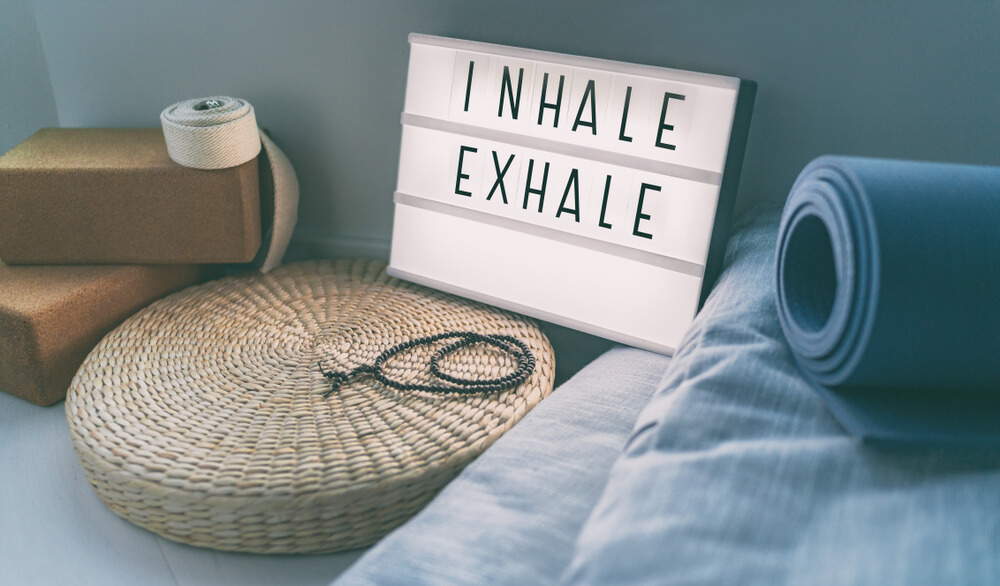Luckily, there are several things we can do to reduce our stress levels and create a sense of peace amidst all the madness. Diet and exercise are great ways to do so, but today we want to discuss an often-overlooked means of coping with stress: breathwork. How can breathwork change your mood and help you cope with stress?
Types of Breathwork
Deep Breaths are typically anywhere from three to five seconds in length for inhalation and exhalation. They are great for lowering heart rate and internal tension in just moments.
Extended Exhalation is modeled after our usual breathing patterns. So, you can inhale as you usually do and extend your exhale while counting down from a number that feels good for you, typically about double the length of your regular exhalation pattern. You can start with 5 seconds and increase or decrease from there as it feels right for your body.
Pursed Lip Breathing is a unique method that physically forces us to relax our breathing patterns. With pursed lips, you can “sip” air as you inhale, so the air travels slowly into your lungs. You can use this with extended exhalation if that feels good for you, or exhale in your usual pattern.
Diaphragmatic Breathing is an excellent method to choose once you are already in a state of comfort and relaxation, helping some people fall asleep. To practice diaphragmatic breathing, lay on your back and try to be conscious of your diaphragm expanding and contracting as you take deep breaths. You can also increase your awareness by placing one hand over your belly and one over your heart while you’re breathing.
Lion’s Breath is another choice for those feeling tension in the face or chest. To practice this method, begin to open your mouth as you finish taking a deep breath through your nose. As you start to exhale, stick out your tongue, bringing the tip of your tongue down toward your chin. Although it may feel silly, this stretches almost all of the muscles in your face and can feel refreshing if you need a quick reset.
Benefits of Practicing Breathwork
Regardless of the type of breathwork you choose to implement, there are several benefits attached to it that will help you navigate through moments of high stress:
Staying Present
Practicing breathwork isn’t exactly the same thing as practicing meditation, but there are several similar benefits. Specifically, breathwork is excellent for lowering blood pressure and releasing tension, both of which are vital factors in keeping us content in the present.
Keeping Calm
Practicing breathwork is a great way to restore calmness. Recognizing when our body is tense and taking the necessary time to release this tension can be a great boost in the most challenging times. The best part? The more we practice breathwork, the more effective our brain becomes at quickly releasing unneeded tension.
Building Concentration
Practicing breathwork exercises over an extended period can help us build up our inner discipline. Rather than being distracted by passing thoughts, breathwork allows us to give our undivided attention to our breath as we inhale and exhale. After several sessions, this improved discipline will begin to carry over into our daily lives.
Small Time Commitment
Our favorite thing about practicing breathwork is that it doesn’t require you to section off time out of your already busy schedule. Even spending a few moments each day being mindful of your breathing can start leading toward positive, noticeable results.
Improve Your Mental Health with CBT Baltimore
If you are interested in seeking therapy in Baltimore, we’re here to help.
Contact the CBT experts at CBT Baltimore, or request to schedule a session. We would love to speak with you.

